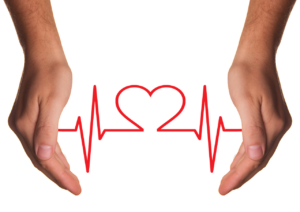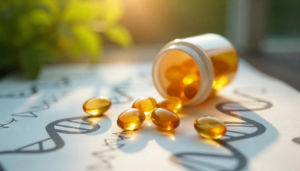Coenzyme Q10 (CoQ10) is a potent antioxidant compound that is naturally present in human cells. It is particularly concentrated in the mitochondrial membranes, where it plays a critical role in oxidative phosphorylation, the process responsible for producing adenosine triphosphate, the primary energy carrier in cells.
CoQ10 supports cardiovascular health, may help lower blood pressure, improve cholesterol profiles, and protect cells from oxidative damage caused by free radicals. It also has a role in improving fertility by enhancing reproductive cells quality through supporting energy production and protecting from oxidative damage.

As CoQ10 levels tend to decline with age, this decline is often linked to potential health issues associated with aging.
Dietary sources rich in CoQ10 include meat, fish, nuts, and certain oils. It is also widely available as a dietary supplement and is commonly used to support general wellbeing and in the management or prevention of various chronic conditions. Supplementation is especially important for individuals taking statin medications, as statins can reduce endogenous CoQ10 levels.

Some people may have lower than expected CoQ10 levels for their age due to genetic variations that affect CoQ10 biosynthesis. The synthesis of CoQ10 involves multiple enzymes encoded by several genes, and variants in these genes can impair its production. Some of these key genes are:
- NQO1 encodes an enzyme that plays a crucial role in cellular detoxification. It is responsible for converting CoQ10 to its active, antioxidant form, therefore enhancing its biological activity.
- MnSOD, GPX1, and CAT encode key antioxidant enzymes (manganese superoxide dismutase, glutathione peroxidase, and catalase, respectively), which are essential for neutralising reactive oxygen species. The activity of these enzymes is closely linked to CoQ10 levels, as CoQ10 contributes to cellular antioxidant defence and energy metabolism.
Our Fitgenes practitioner-only Health and Wellbeing Report includes testing of these genes, among other genes involved in key biological functions such as inflammation, cardiovascular health, and fat metabolism, and information on gene-specific interventions to maximise your health.
Go to our Health and Wellbeing Report page or contact us at enquiries@fitgenes.com for more information or for us to help you locate a Fitgenes Accredited Practitioner.

Article author: Cristina Fortuno, PhD
Dr Fortuno is genetic scientist with focus on human health, and has a PhD (University of Queensland) in Human genetics.
References
Cirilli I, Damiani E, Dludla PV, et al. Role of Coenzyme Q10 in Health and Disease: An Update on the Last 10 Years (2010-2020). Antioxidants (Basel). 2021;10(8):1325. Published 2021 Aug 23. doi:10.3390/antiox10081325
Lee BJ, Lin YC, Huang YC, Ko YW, Hsia S, Lin PT. The relationship between coenzyme Q10, oxidative stress, and antioxidant enzymes activities and coronary artery disease. ScientificWorldJournal. 2012;2012:792756. doi:10.1100/2012/792756
Ross D, Siegel D. Functions of NQO1 in Cellular Protection and CoQ10 Metabolism and its Potential Role as a Redox Sensitive Molecular Switch. Front Physiol. 2017;8:595. Published 2017 Aug 24. doi:10.3389/fphys.2017.00595


